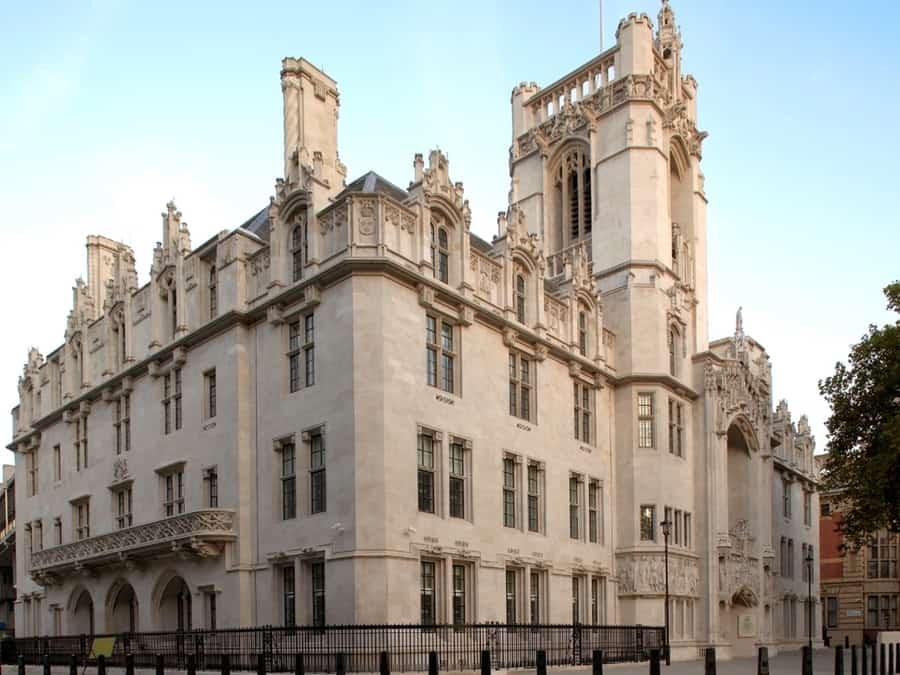Mobility companies set for business interruption pay outs after historic judgement

A landmark judgement by the UK Supreme Court on 15 January 2021 may result in thousands of small businesses having their claims for COVID-related business interruption losses paid out.
On Friday, the final court of appeal court in the UK largely upheld the High Court’s September judgement that substantially found in favour of policyholders for the Financial Conduct Authority’s (FCA) business interruption insurance test case.
As a result of the Supreme Court’s ruling, eligible mobility retailers are set to receive pay outs from their insurers for COVID-19 business interruption which had previously been denied.
The unprecedented FCA test case
As the COVID-19 outbreak spread across the UK in spring 2020, many businesses, including retailers in the mobility and access sector, saw significant losses, leading many to claim under their business interruption (BI) policies.
While the majority of SME policies focused on property damage and had only basic cover for business interruption as a consequence of property damage, some policies also included business interruption for other causes. In particular, some covered infectious or notifiable diseases and prevention of access and public authority closures or restrictions.
In March 2020, however, the insurance industry largely adopted the position that business interruption policies did not apply to the ensuing pandemic.
The dispute resulted in hundreds of companies complaining to the financial ombudsman. In response, it was agreed that a selection of policy wordings should be tested in court. The ruling would determine what would be considered a valid claim.
The case was brought by the FCA in June 2020, with eight insurers agreeing to take part to seek clarity on 21 policy wordings, impacting approximately 700 types of policies covering around 370,000 different businesses.
In September, the High Court judged that some of the disputed claims should have been paid out by insurers. The complex ruling included issues including government-ordered closures and disease clauses, as well as the timing of lost earnings.
The judgement was appealed by both parties and fast-tracked to the Supreme Court in the same month. On 15 January 2021, the Supreme Court substantially allowed the FCA’s appeal on behalf of policyholders, completing the legal process for impacted policies.
What this means for affected businesses?
For tens of thousands of businesses across the UK, including many in the mobility, access and independent living sector, the final judgement will see policyholders now have their claims for coronavirus-related business interruption losses paid.
A statement released by the FCA following the announcement stated: “The test case was not intended to encompass all possible disputes, but to resolve some key contractual uncertainties and ‘causation’ issues to provide clarity for policyholders and insurers. Today’s judgment does not determine how much is payable under individual policies, but provides much of the basis for doing so.”
It added that policyholders with affected claims can expect to hear from their insurer soon, however, should direct questions to their broker, other advisers or insurer.
“Policyholders who remain unhappy following their insurer’s assessment of their claim may be able to refer their claim to the Financial Ombudsman Service, whose role is to resolve individual disputes,” noted the FCA.
Flora Hamilton, Financial Services Director for the Confederation of British Industry, welcomed the much-needed clarity for UK firms.
“At such an uncertain time, this court case provides… relief for smaller firms struggling with cashflow,” she commented.
“This is significant news for insurers, and regulators will need to work closely with the industry as policies, products and processes are updated to reflect this ruling.”
After the verdict was confirmed, Huw Evans, Director General of the Association of British Insurers, commented: “Insurers have supported this fast-track legal process every step of the way and we welcome the clarity that the judgment will bring to a number of complex issues. Today’s judgment represents the final step in the appeal process.
“The insurance industry expects to pay out over £1.8 billlion in Covid-19 related claims across a range of products, including business interruption policies. Customers who have made claims that are affected by the test case will be contacted by their insurer to discuss what the judgment means for their claim. All valid claims will be settled as soon as possible and in many cases the process of settling claims has begun. Some payments have already been made where valid business interruption claims have not been impacted by the test case ruling.”
https://thiis.co.uk/mobility-companies-set-for-business-interruption-pay-outs-after-historic-judgement/https://thiis.co.uk/wp-content/uploads/2021/01/Webp.net-resizeimage1-2.jpghttps://thiis.co.uk/wp-content/uploads/2021/01/Webp.net-resizeimage1-2-150x150.jpgBusiness SupportCoronavirus NewsCOVID-19 Trade NewsNewsroomRetailer NewsSupplier NewsTrade NewsBusiness Interruption,cover,COVID-19,judgement,landmark,mobility retailers,Supreme CourtA landmark judgement by the UK Supreme Court on 15 January 2021 may result in thousands of small businesses having their claims for COVID-related business interruption losses paid out. On Friday, the final court of appeal court in the UK largely upheld the High Court’s September judgement that substantially found...Liane McIvorLiane McIvorliane@thiis.co.ukEditorTHIIS Magazine

